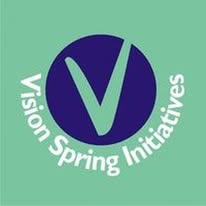As the World Marks Universal Health Coverage Declaration Day – December 12, 2023
By Mojirola Jolaoso
Programs Intern – Vision Spring Initiatives
Universal Health Coverage means that all people have access to the full range of quality healthcare services they need, when and where they need them, without financial hardship. It encompasses the full range of basic, high-quality health services from prevention to recovery, rehabilitation, and palliative care for people of all ages. The theme for this year is ‘Health for All: Time for Action’. This emphasizes the need for immediate and tangible steps in the inclusion of all citizens. It urges leaders to enact policies that guarantee stable access to essential health services without financial hardship. It is therefore imperative to plough money into adaptable health systems that will ensure Health for All. It is of great concern that there is a huge gap in the attainment of Universal Health Coverage in Nigeria as it concerns the theme for this year and the sexual and reproductive health and rights of adolescents. Nigeria being the most populous in Sub-Saharan Africa performs poorly in the delivery of services for Universal Health Coverage according to the World Bank’s Universal Health Coverage Service Coverage Index. Health care in the country is a concurrent responsibility of the three tiers of government. Unfortunately, only a few states have been able to make progress in improving health outcomes. This to a large extent has affected the access to healthcare services of marginalized youth, especially adolescent girls. It is therefore pertinent to call for urgent action from stakeholders in achieving the goal of the Universal Health Coverage Declaration for the citizenry most especially young women in their reproductive age. Due to this lacuna, Vision Spring Initiatives choose to advocate for the health and well-being of adolescent girls as a vital organ of the entire populace concerning their sexual and reproductive health and rights.
The rate of unwanted pregnancies among adolescents is very high, thus, leading to cases of unsafe abortion. Nigeria has one of the highest maternal mortalities in the world—1500 women per 100,000 births. This preventable loss of lives can be greatly curtailed with the approval of unhindered access to contraceptive information and services. About a million births a year in Nigeria are to teenage mothers, according to former minister of health Olikoye Ransome-Kuti, and abortion complications are responsible for 72% of all deaths among teenagers below the age of 19. As concerned Nigerians, one slogan Vision Spring Initiatives have imbibed is “embrace the new normal”, in this slogan, the key message is to challenge the patriarchal society which puts adolescent girls at a disadvantaged position in learning about their sexuality and means of preventing early and unwanted pregnancies and STIs.
Adolescence is often described as a stage between childhood and adulthood. It is typically a period where the major psychological task is to determine identity, that is, develop the power to make decisions, be in control, and develop mature sexuality. In most cases, adolescents are unable to grapple with the challenges of life, often vulnerable to peer pressure and ignoring the opinions of family members. However, the advocacies for sex education and access to contraceptive information and services have been met with stiff opposition by conservative parents and stakeholders with the excuse that it will open the gate of promiscuity for adolescents. Sexual activities for adolescent girls are frowned upon by society, especially the fear of early and unwanted pregnancies, sexually transmitted infections, dropping out of school, and financial dependence on the family. Vision Spring Initiatives advocates that young women be treated like autonomous human beings capable of deciding what is in their best interest when seeking contraceptive information and services from health providers. This will align with the principles of evolving capacities of the child and the right of the child to be heard in all matters.
Adolescents’ right to autonomy is not a privilege; rather it is a fundamental right that she is entitled to by being human. Our healthcare institution should therefore serve as a beacon of hope to young women who seek information on health-related matters by being friendly, accessible, non-judgemental, and professional.
Providing unhindered access to contraceptive information and services to young women who require this information, will reduce the high rate of maternal mortality associated with unsafe, illegal abortions which are preventable. It will also reduce the sexual and reproductive ill-health cases prevalent among women of reproductive age in Nigeria. This, in turn, will improve health outcomes and reduce poverty, thereby increasing economic growth.
Furthermore, unwanted pregnancies and other sexual and reproductive health issues are contributory factors to the high rate of out-of-school children which is about twenty percent of Nigeria’s population, thereby pushing the adolescent girl to the brink of poverty. Comprehensive contraceptive information and services will play a great role in mitigating this plague. This will enhance concentration on school activities and attainment of their set goals.
Providing unhindered access to contraceptive information and services ensures the right to privacy, dignity, non-discrimination, liberty, and the right to life as contained in Chapter IV of the Nigerian Constitution. Young women deserve adequate information that enables them to make informed decisions concerning their reproductive health and rights.
REFERENCE
https://www.ncbi.nlm.nih.gov/pmc/articles/PMC4970740/
